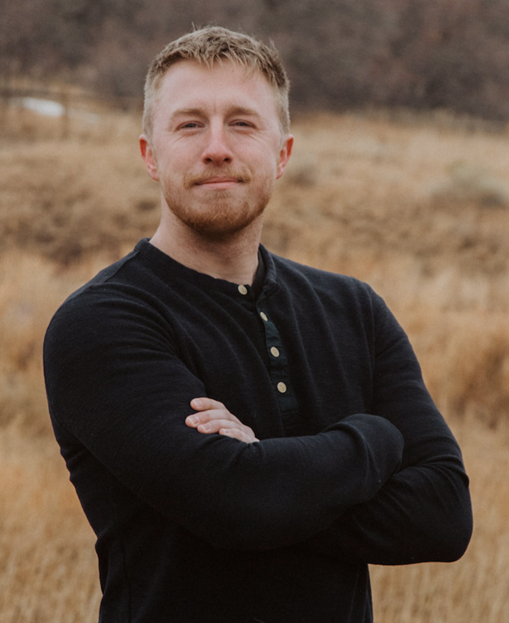Regardless of our past or present choices, many of us have great concerns about our sexuality and spirituality. In a Western society often characterized by a feelings-first culture and sound-bite news, confusing messages about how to relate to ourselves, and others, as sexual beings, abound.
Since the Supreme Court’s decision on Obergefell vs. Hodges (2015), colloquial phrases of “you-do-you,” “do whatever or whoever makes you happy,” and “love is love” have saturated the social conscious of Western nations.
Or as one faith dictionary put it:
“These struggles are exacerbated in a pluralistic, fragmented society where the social sciences have come to dominate most discussions of sexuality, and with an increasing emphasis upon the constructed nature of gender.”
Following the title, if you and I’s impulse is to say, ‘we don’t need theology’, then ironically, that is a theological statement. All of us are doing theology, God-speak, the distinction is where are we drawing our theology from?
Sexuality, yes, while important, is not all that we are. Before sexuality is morality, its anthropology, and greater still it is about theology. What is a human? And why are we here?
So, to ensure I don’t start with the incorrect assumptions, look quickly at the two stories of sexuality side by side for a moment.
While time doesn’t allow more nuance, please don’t interpret the shortness as oversimplification, but an honest synthesis.
Secular: Library of Scripture:
-Humans: animals, time + chance -Humans: image of God. Like God
-Male/Female: plumbing -Disposition: good, but bent
-Gender: social construct -Male/Female: a part of humanity
-Sex: play, biological release -Sex: something at the soul level
-Love: feeling of happiness -Love: sacrificial choice; a person
-Body + Soul: “I am not my body” -Body + Soul: a unified whole
-Philosophy: Dualism -Philosophy: Parallelism
-Nature: matter doesn’t matter -Nature: multi-faceted + complex
-Bible: repressive + outdated -Bible: human + divine collection
-Meaning: you choose -Meaning: agape love
-Flourishing: ‘be true to yourself’ -Flourishing: be true to Jesus
And, yet still other self-proclaimed Christians baulk at this, the PhD professor Megan DeFranza comments:
“God did not create only male and female but also an entire spectrum of genetic variations in between. To insist on the male/female binary is ‘oppressive’.
Max De Pree, from Fuller Theological Seminary, says the “first job of a leader is to define reality.” C.S Lewis, the intellectual titan agrees, we must communicate life as it really is.
Here’s a challenging question, which one of those stories best aligns with reality as it really is? Which story of sexuality do we put our trust in? One more sobering thought?
As a functional pastor, I don’t see people who live in the secular story say their lives are teeming with what Jesus calls the fruits of the Kingdom of God: righteousness, joy, and peace.
In every reference of our sexuality and spirituality, OT + NT, what we see highlighted is its formative power.
Consider 1 Cor 6, “anyone who sins sexually, sins against their own body, you’ve been bought at a price, so honor God with your bodies.” (paraphrased)
A Seminary professor says, ‘sinning against ourselves or our body; the best understanding of that is to distort personality or ourselves.’
As an overarching, and still deeply personally way, sexuality acutely shapes who we are and our (wholistic) formation.
Look at Mary Eberstadt’s comments:
“First, contrary to conventional depiction, the sexual revolution has proved a disaster for many men and women, and second the weight has fallen on the smallest and youngest shoulders among us in society, even as it has given extra strength to those already strongest and most predatory.”
At the basement level of our hearts, the question each of us must answer is how.
How do we bring our sexuality to the person of Jesus who was so kind to those who contended with this part of their personhood and ask Him. Please, form me, shape me, mold me. I want you to be the Lord of my life, not just of my psychosexual state. Here I am, I offer myself to you.
Isaiah 42:3, a bruised reed He will not break.
In our NA society, and especially the church, it’s insufficiently touted that we, really, only have two options. (1) Fear your desirers or (2) follow your desires. Yet, Jesus offers a third way. It is sexual formation.
Following Jesus is not, primarily, what I am doing or why I am doing it, but a larger question of who am I trusting, then in turn, who am I becoming as a result?
Every person will inevitably have to ask this question. If not, you’ll run into what one philosopher quips as “you can’t go against the grain of the universe and not expect to get splinters.”
Look at 1 Thessalonians 4 –
3 It is God’s will that you should be sanctified: that you should avoid sexual immorality; 4 that each of you should learn to control your own body[a] in a way that is holy and honorable, 5 not in passionate lust like the pagans, who do not know God; 6 and that in this matter no one should wrong or take advantage of a brother or sister.[b] The Lord will punish all those who commit such sins, as we told you and warned you before. 7 For God did not call us to be impure, but to live a holy life. 8 Therefore, anyone who rejects this instruction does not reject a human being but God, the very God who gives you his Holy Spirit.
Did you catch it? Each passage in Scripture that references sexuality emphasizes its power in formation and it gives us wise instruction on saving us from deformation.
To close, who are you and I becoming by what we are doing or not doing? Is your neurology, your psychosexual person being mapped by algorithms, screens, your pride or performance? Or is it being shaped by the breath of God who calls you to wisdom and compassion?

Greg Navitsky
WGA Staff
While growing up in Arlington Heights, IL, it wasn’t until the start of my senior year did I start to wonder if Jesus was worth considering. For me, it took the intellectual, communal, and personal components to come together to say – yes – to Him. I like to say He captured the restlessness of my soul and like a guitar restrung my heart with the cords of eternity and it hasn’t gone back since.
Shortly after coming to know Jesus as my greatest hope and reality, my father died. Since then, I’ve taken great comfort in Corrie Ten Boom’s words, “If you look at the world, you’ll be distressed. If you look within, you’ll be depressed. If you look at God, you’ll be at rest.”
Then, not long after that, a family member came out to me. For the first time this dimension of life – spirituality and sexuality – wasn’t an abstract concept, this was and is a person. After attending to them with grace and truth, an odd phenomenon kept happening to me, or has it been for something? Individuals would continually trust me with their questions, wounds, and curiosities about their sexuality. At this point, it’s climbed to 15+. From there, I’ve invested the better part of eight years being engaged with individuals and immersed in the dizzying array of literature on these areas of our personhood.
I’ve found Elizabeth Elliot’s words to have great bearing on our cultural moment: “Faith doesn’t eliminate questions, but faith knows where to take them.” Two prayers that have grounded and guided my life are: “I long to have faith and obedience like those I see in the Scriptures, and I long to preach the gospel to the nations.”
Those are my life’s aims. Among my love of books, reflection, and nurturing meaningful relationships, I enjoy good coffee, jazz music, golf, snowboarding, the movies, pizza (pepperoni), cooking, the mountains, and the beach as well as traveling.
I hold an MDiv from Denver Seminary, and I hope to gain more clarity on pursuing a PhD in the coming years.
I’m humbled and honored to join the WGA staff and contribute to the on-going space they are curating for every person, every story, and every beautiful and broken aspect of our human experience.
Make a Difference in Someone's Life
If you enjoy reading WGA’s blogs and would like to show your support, please consider making a donation. Where Grace Abounds is a 501(c)3 non-profit organization. The majority of services, including support groups and discipleship counseling, are provided free of charge. Your financial gifts help to cover the costs associated with offering a free program to those who seek WGA’s services.

